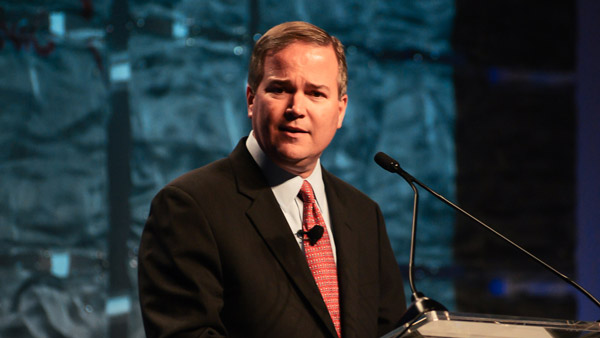
 Dale Brown speaks at an FSI event in 2015.
Dale Brown speaks at an FSI event in 2015.
Industry trade groups voiced their opposition Wednesday to legislation in Maryland that includes a measure to impose fiduciary obligations on brokers and advisors.
Panels in both of Maryland's legislative chambers — the House Economic Matters Committee and the Senate Committee on Finance — held simultaneous hearings Wednesday in Annapolis on the Financial Consumer Protection Act of 2019.
In their testimony before the committees, the Securities Industry and Financial Markets Association, the Financial Services Institute, the National Association of Insurance and Financial Advisors and the Insured Retirement Institute voiced opposition to the state's fiduciary legislation, stating it contributes to a "patchwork" of state best-interest rules.
The groups urged the Maryland lawmakers to wait on the Securities and Exchange Commission's upcoming Regulation Best Interest as it will set a federal standard, and is expected to be finalized by the end of summer.
The House Financial Services Subcommittee on Investor Protection, Entrepreneurship and Capital Markets, chaired by Rep. Carolyn Maloney, D-N.Y., has scheduled a Thursday hearing on Reg BI.
Lisa Bleier, SIFMA's managing director and associate general counsel, stated that the trade group "has publicly advocated for a heightened standard of conduct for broker-dealers for over 10 years," and that "it is important that any heightened standard of conduct apply uniformly nationwide and not be limited to specific accounts or products."
For these reasons, she said, "SIFMA strongly supports SEC efforts to establish a best-interest standard for broker-dealers and has serious concerns about any state-specific duties."



